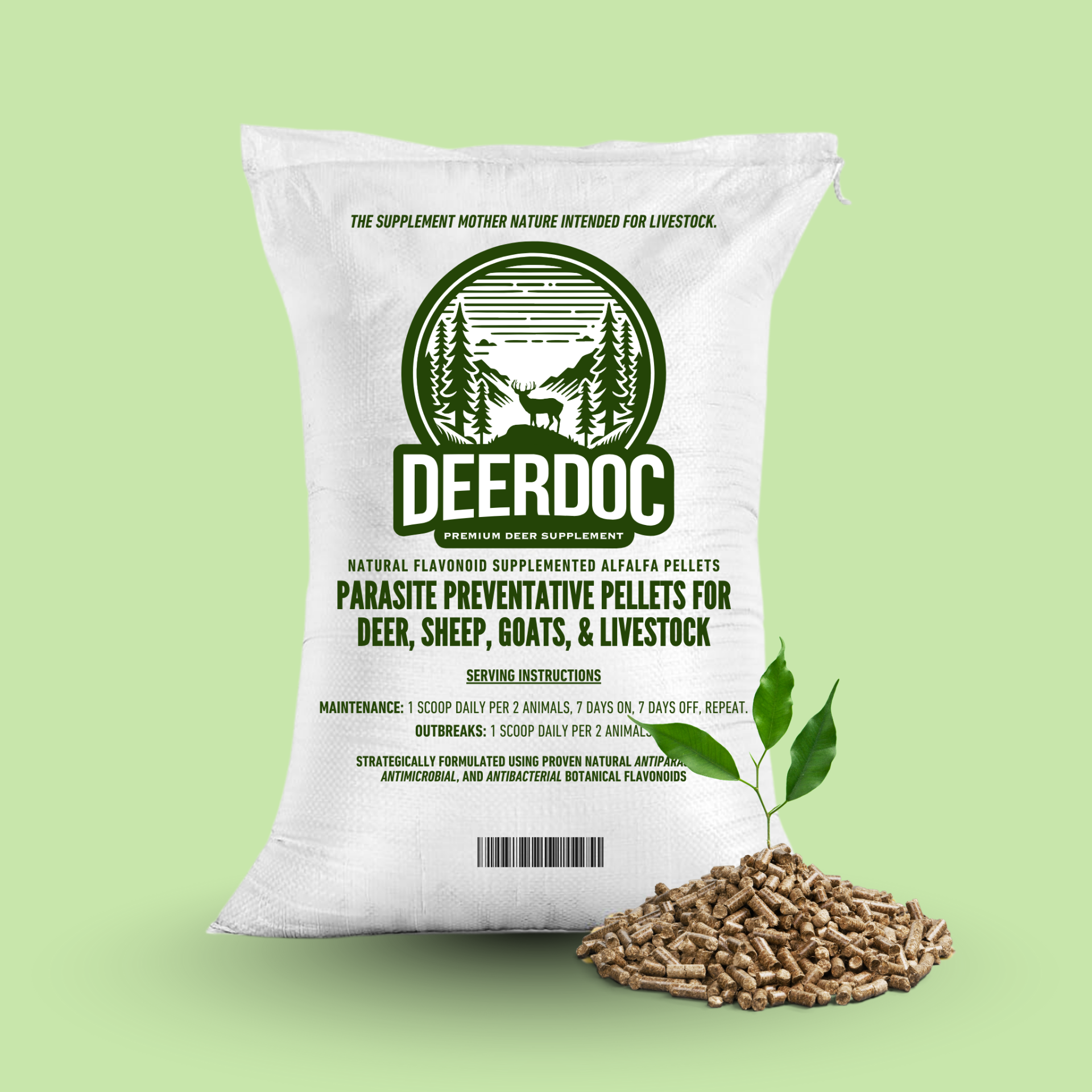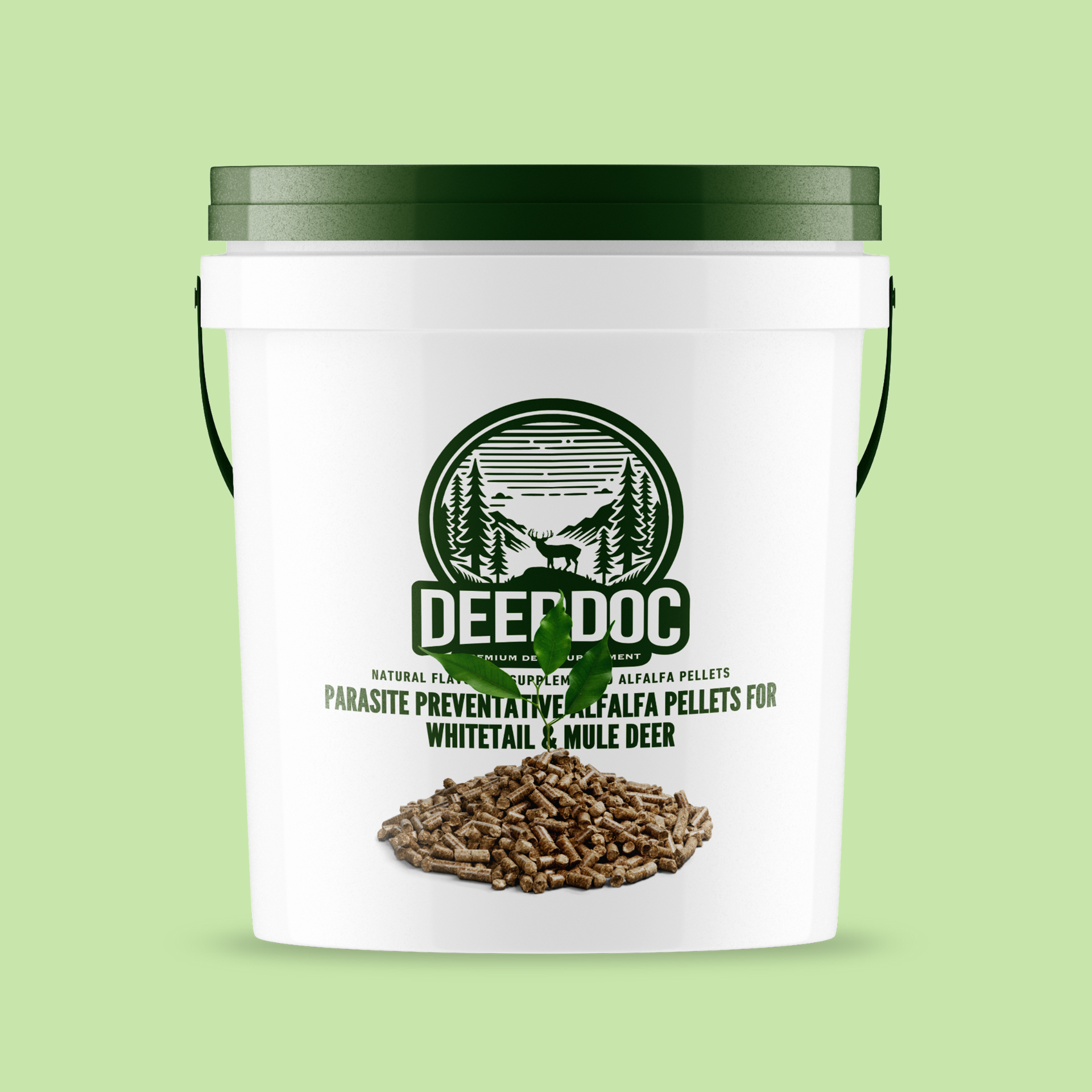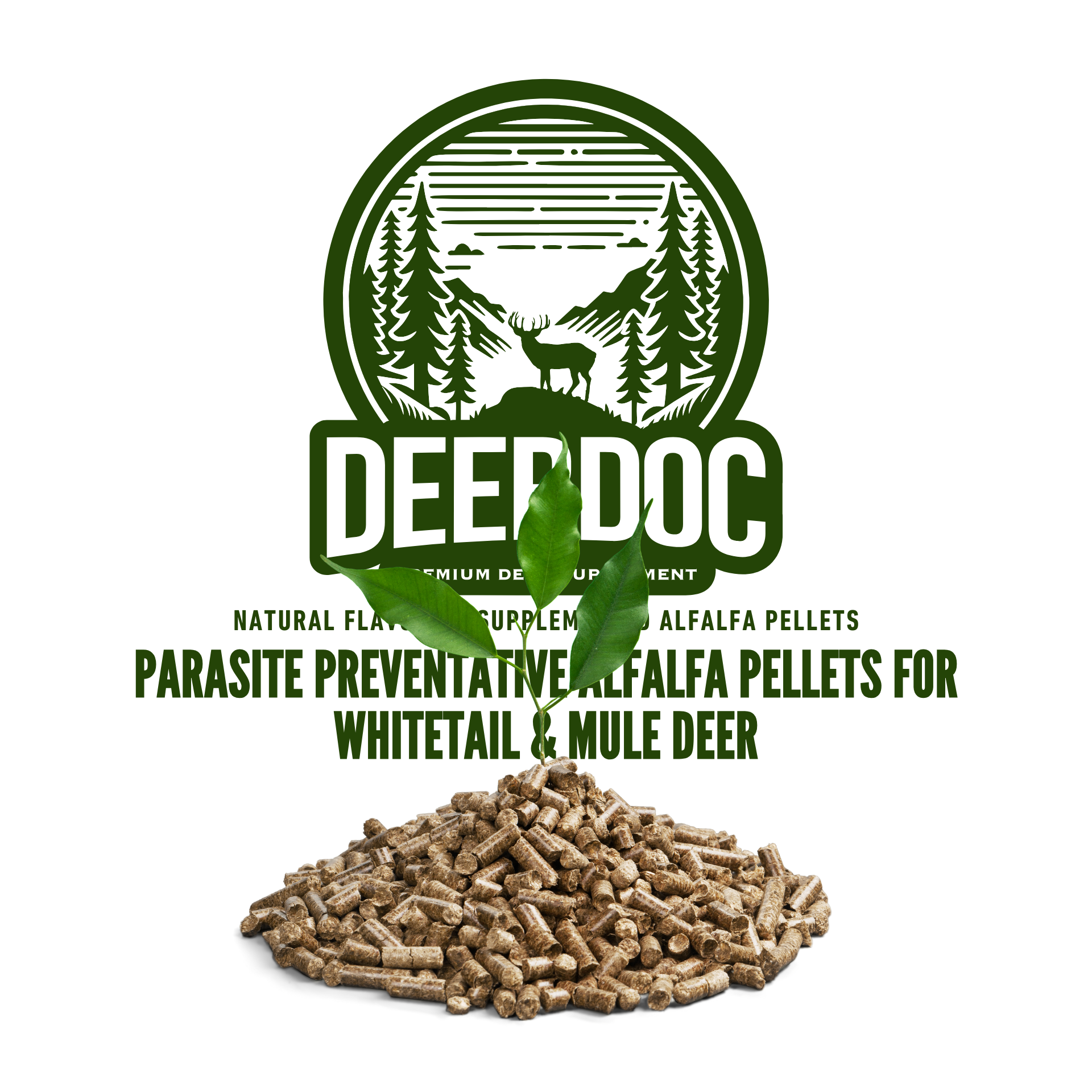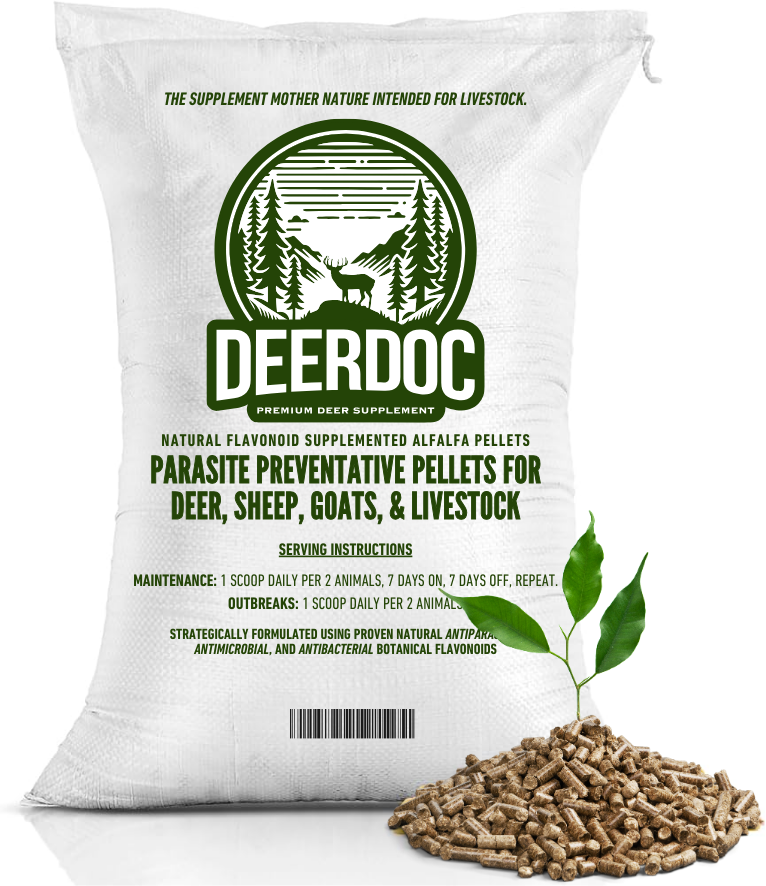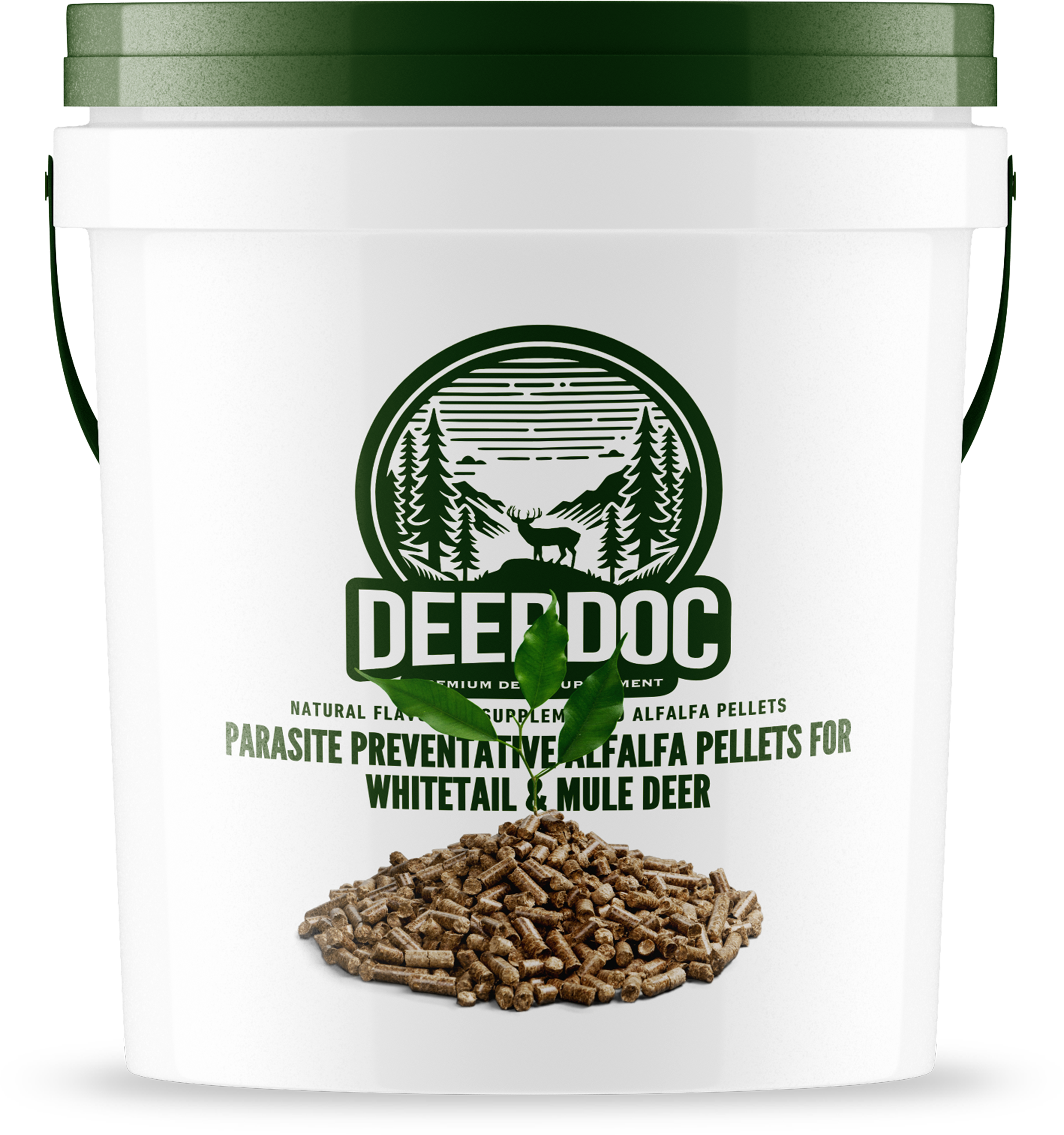Key Research on Flavonoids for Natural Parasite Control
Below are peer‑reviewed studies demonstrating the anthelmintic (anti‑parasite) properties of flavonoids in ruminants—directly supporting DeerDoc®’s approach:
-
Hoste & Torres‑Acosta (2011), Veterinary Parasitology
“Non‑chemical control of helminths in ruminants: Adapting solutions for changing worms in a changing world.”
Read on PubMed -
Gaudin et al. (2016), Veterinary Parasitology
“Efficacy of sainfoin (Onobrychis viciifolia) pellets against multi‑resistant Haemonchus contortus.”
View on ScienceDirect -
Giovanelli et al. (2018), Veterinary Sciences
“In vitro anthelmintic activity of four plant‑derived compounds against sheep gastrointestinal nematodes.”
Read the DOI -
Hoste et al. (2006), Trends in Parasitology
“Role of plant polyphenols in ruminant parasite control: perspectives and challenges.”
View on ScienceDirect -
Niezen et al. (1998), International Journal for Parasitology
“The effect of condensed tannins from Lotus pedunculatus on gastrointestinal nematode infections in sheep.”
Read the DOI -
Sandoval‑Castro et al. (2012), Veterinary Parasitology
“Direct and indirect effects of bioactive tannin‑rich tropical and temperate legumes against nematode infections.”
View on ScienceDirect -
Hoste et al. (2015), Journal of Agricultural and Food Chemistry
“Ellagitannins inhibit the exsheathment of Haemonchus contortus…”
Read the DOI -
Sandoval‑Castro, Torres‑Acosta & Hoste (2012), ResearchGate
“Using plant bioactive materials to control gastrointestinal tract helminths in livestock.”
View on ResearchGate -
Torres‑Acosta & Hoste (2008), ResearchGate
“Alternative or improved methods to limit gastrointestinal parasitism in grazing sheep and goats.”
View on ResearchGate -
Core Archive (2011)
“Non‑chemical control of helminths in ruminants: adapting solutions for changing worms in a changing world.”
Access on CORE


